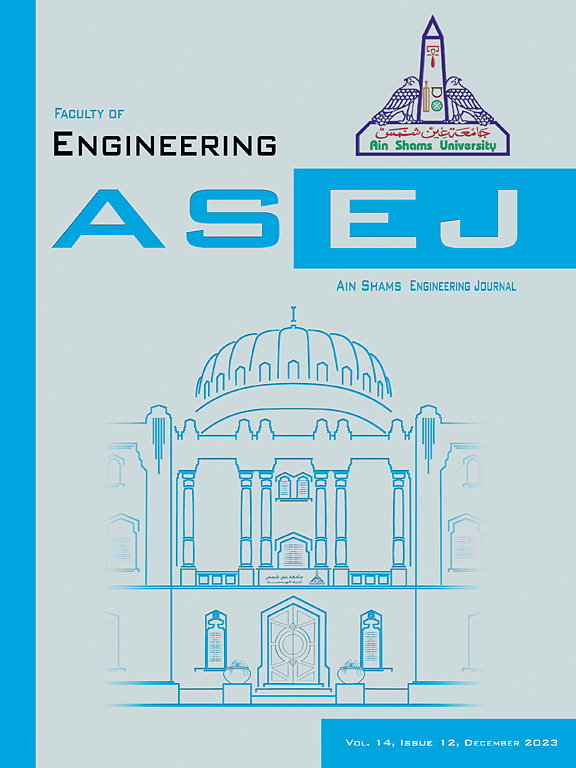通过改进非洲秃鹫优化算法优化基于可再生能源的互联电力系统中的双级控制器
IF 6
2区 工程技术
Q1 ENGINEERING, MULTIDISCIPLINARY
引用次数: 0
摘要
本文以三区系统为重点,探讨了传统框架下的自动发电控制。区域 2 使用热-热源,区域 3 使用气-热源,区域 1 使用热-生物柴油源。IPD(1 + I) 是一种独特的级联控制器,它将积分-比例-派生 (IPD) 元件与一加积分 (1 + I) 元件相结合。为找到 IPD(1 + I)控制器的最佳增益和设置,采用了一种名为非洲秃鹫优化算法(AVOA)的元启发式方法。主要目标是降低由性能指数 (Pi) 决定的积分平方误差 (ISE)。通过将 IPD(1 + I) 控制器与一系列二级控制器进行对比,对其性能进行了评估。除传统的 ISE 外,还评估了混合峰值区域-ISE(hPA-ISE)这一新型性能指标。太阳能热能和固体氧化物燃料电池等可再生能源的加入大大提高了系统的性能。有趣的是,在正常情况下,IPD(1 + I)控制器的参数设置在正弦和随机负载情况下都能继续工作,无需额外调整。本文章由计算机程序翻译,如有差异,请以英文原文为准。
Optimization of dual-stage controllers in renewable energy sources-based interconnected power systems through refinement of the African Vultures Optimization Algorithm
With an emphasis on a three-region system, this paper explores automatic generation control within a conventional framework. Area 2 uses thermal-thermal sources, Area 3 uses gas-thermal sources, and Area 1 uses thermal-biodiesel sources. IPD(1 + I) is a unique cascade controller that combines integral-proportional-derivative (IPD) components with one-plus-integral (1 + I) components. To find the best gains and settings for the IPD(1 + I) controller, a meta-heuristic method called the African Vulture Optimization Algorithm (AVOA) is applied. Reducing the integral squared error (ISE), as determined by the performance index (Pi), is the main goal. The performance of the IPD(1 + I) controller is evaluated by contrasting it with a range of secondary controllers. Hybrid Peak Area-ISE (hPA-ISE), a novel performance metric, is also assessed in addition to the conventional ISE. The incorporation of renewable energy sources, such solar thermal energy and solid oxide fuel cells, significantly improves the system’s performance. Interestingly, under normal conditions, the IPD(1 + I) controller’s parameter settings continue to work for both sinusoidal and random load situations, obviating the need for additional tuning.
求助全文
通过发布文献求助,成功后即可免费获取论文全文。
去求助
来源期刊

Ain Shams Engineering Journal
Engineering-General Engineering
CiteScore
10.80
自引率
13.30%
发文量
441
审稿时长
49 weeks
期刊介绍:
in Shams Engineering Journal is an international journal devoted to publication of peer reviewed original high-quality research papers and review papers in both traditional topics and those of emerging science and technology. Areas of both theoretical and fundamental interest as well as those concerning industrial applications, emerging instrumental techniques and those which have some practical application to an aspect of human endeavor, such as the preservation of the environment, health, waste disposal are welcome. The overall focus is on original and rigorous scientific research results which have generic significance.
Ain Shams Engineering Journal focuses upon aspects of mechanical engineering, electrical engineering, civil engineering, chemical engineering, petroleum engineering, environmental engineering, architectural and urban planning engineering. Papers in which knowledge from other disciplines is integrated with engineering are especially welcome like nanotechnology, material sciences, and computational methods as well as applied basic sciences: engineering mathematics, physics and chemistry.
 求助内容:
求助内容: 应助结果提醒方式:
应助结果提醒方式:


